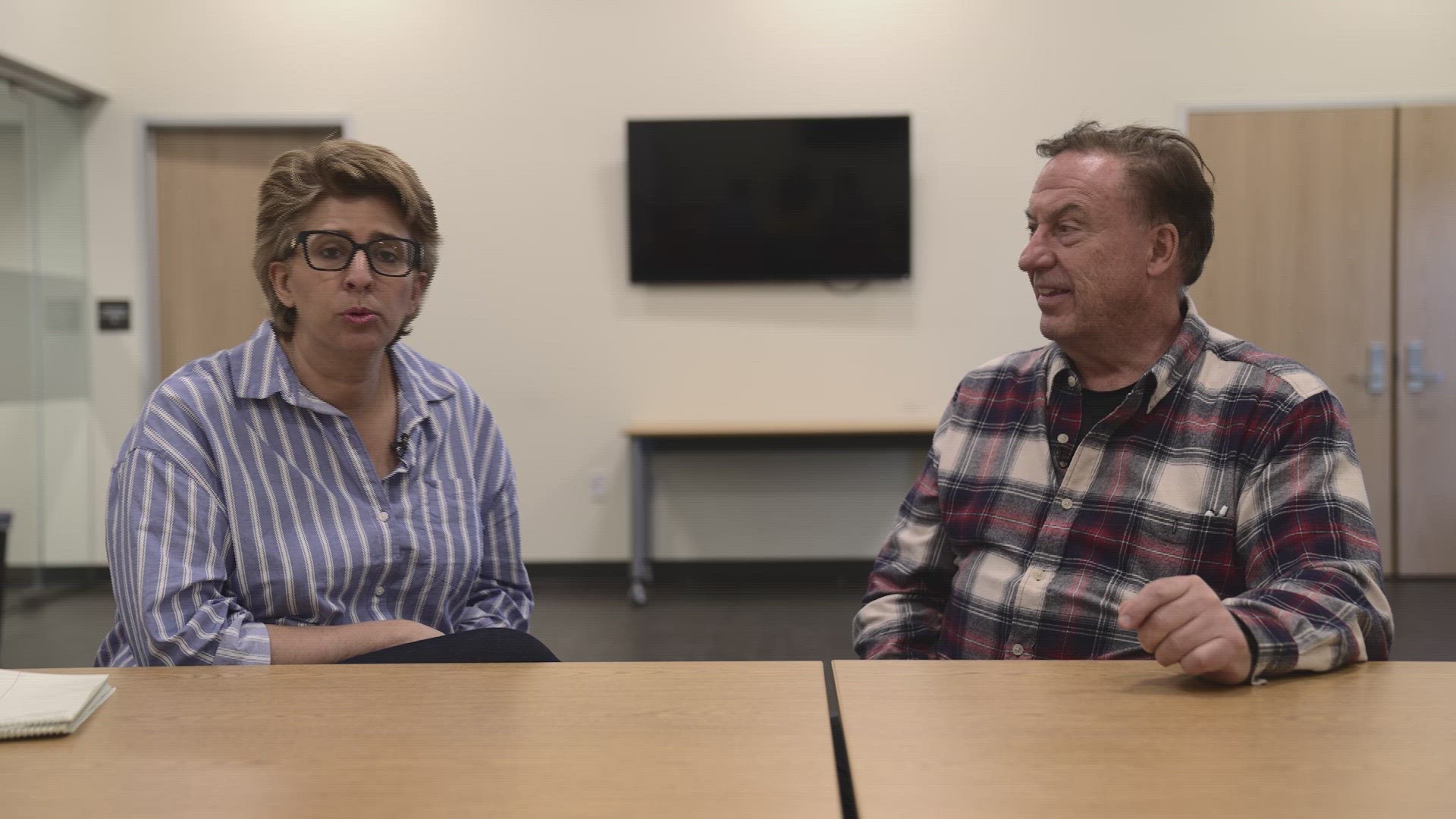SHERMAN, Texas — The owner of an Oklahoma City aircraft title company pocketed between $10,000 and $100,000 in escrow fees for each plane sale while facilitating an alleged Ponzi scheme, according to federal court testimony Wednesday.
Prosecutors have alleged Debra Lynn Mercer-Erwin, the president of Wright Brothers Aircraft Title, collected a total of $4.9 million in escrow fees over four years. However, prosecutors have alleged that she failed to hold investor money in escrow as promised.
“As soon as the money came in, it was sent out to pay other investors,” Homeland Security Special Agent Justin Marshall testified.
“Her role in this game is what is most important,” Marshall said. “She controlled the money.”
Prosecutors have alleged the planes involved in the Ponzi scheme either didn’t exist or weren’t for sale. They say she conspired with her co-conspirator, Federico Machado, to defraud investors.
Machado owned a Florida-based business called South Aviation, as well as several other entities. Machado is now an international fugitive. He’s fighting extradition from Argentina.
Prosecutors have alleged that 30% of Wright Brothers business over a five-year period was part of the alleged Ponzi scheme. In all, $750 million flowed through Wright Brothers as part of the alleged scheme, Marshall testified.
Investors, according to court records and their attorneys, lost more than $240 million in the alleged Ponzi scheme.
Deloitte forensic accountant Grace Howe testified about her review of bank records, phone records and a ledger of plane sales involving Mercer-Erwin and Machado.
Howe testified that her review found transactions that lacked evidence or proof of a bill of sale.
According to Howe, here’s how it worked:
Investors signed escrow agreements with Wright Brothers. The escrow agreements stated that Wright Brothers would hold the money in the escrow account, pending Machado’s purchase of the planes.
In return for putting up the money, the investors immediately received large fees. Under the terms of a contract, all their money would be returned to them a few months later once Machado completed the aircraft purchases.
The contracts said that the investors “may at any time demand the return of the escrow funds for any reason.”
Also, the contract said that “in no event and under no circumstance shall the escrow agent disburse the deposit or any portion” of the deposit to “any person or entity other than the depositor.”
Howe detailed three transactions, however, to show what happened to the money.
*In March 2020, an investor deposited $6 million into a Wright Brothers account. In exchange, the investor received an immediate $300,000 payment.
However, instead of the money staying in the escrow account, $375,000 went to Machado’s company, South Aviation, according to Howe’s review.
Millions of other dollars went to pay investors from prior plane deals, Howe testified, based on her review of a ledger and bank records. The ledger showed that Mercer-Erwin received a $50,000 escrow fee.
*In June 2020, another investor put in almost $10 million. Instead of the money staying in the account as required by the escrow agreement, $6 million went to the prior investor, according to Howe’s review.
Nearly $3 million went to an entity controlled by Machado. Mercer-Erwin again received a $50,000 escrow fee, records showed.
*In August 2020, a few months later, another investor deposited more than $19 million for another set of plane deals.
Again, the money did not stay in the account as agreed, Howe testified. Records showed $10 million went to pay back the investor from the prior deal, as well as investors in other plane deals. Companies controlled by Machado received about $1.5 million.
Howe testified that during that six-month period in 2020, Mercer-Erwin received $865,000 in escrow fees, and $13.5 million flowed to entities controlled by Machado.
She said it did not make sense for money to flow from Wright Brothers to Machado since he ostensibly was the buyer on the plane deals.
She also testified she could find no bills of sale, letters of intent, or other records establishing that any planes were actually purchased by Machado as part of those three transactions.
Joe E. White Jr., an attorney for Mercer-Erwin, has said his client was deceived by Machado into handling escrow payments tied to the alleged Ponzi scheme.
WFAA spoke to Machado via Zoom, and he acknowledged siphoning investor money into a Guatemalan mining operation. However, he told WFAA he hopes to reimburse the investors.
Mercer-Erwin, who also owns a company called Aircraft Guaranty Corp., is also accused of putting aircraft into the hands of narcotraffickers.
Under U.S. law, foreign nationals cannot get U.S. registration for their aircraft. However, the FAA allows foreign nationals to gain U.S. registration for their aircraft by transferring the title to a trust company.
Prosecutors alleged that Mercer-Erwin “looked the other way” and allowed narcotraffickers to put planes in trust with her company.
Mercer-Erwin’s attorney claimed she did nothing wrong and followed all laws and rules related to trust agreements.
Prosecutors and investigators have said that a series of stories WFAA first aired in 2019 spurred a federal investigation that resulted in the indictments of Mercer-Erwin, her daughter, Kayleigh Moffett, Machado and others.
Moffett pled guilty Monday to wire fraud and not properly reporting that planes had been taken out of the country. She accepted a deal for five years of probation.

